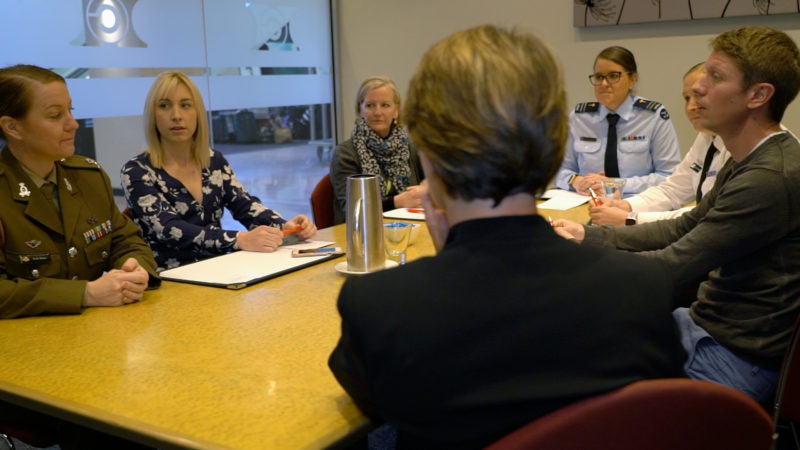La Trobe Rural Health School study for Occupational Therapy Australia identifies practice issues
Almost half a million Australians have served with the Australian Defence Force. Given the high prevalence of physical and mental health conditions and complexity of civilian life adjustment after military service, high-quality occupational therapy services are critical. However, there is limited description of occupational therapy service provision to individuals funded by the Australian Department of Veterans’ Affairs to inform government policy.
A cross-sectional study, led by Professor Carol McKinstry, Professor of Occupational Therapy and Deputy Dean with La Trobe University’s Rural Health School at the Bendigo campus has used an online survey to collect information from occupational therapists providing services to Department of Veterans’ Affairs clients.
The aim of this study was to describe the practice of Australian occupational therapists working with former service members and identify opportunities to enhance practice and policy. Professor McKinstry was instrumental in the development of the occupational therapy course at the La Trobe University’s Bendigo campus and also the establishment of the Rural Health School. She is also the a Board Director of Occupational Therapy Australia.
Participants in the study included 123 Australian occupational therapists residing in metropolitan (47%), regional (28%) and rural/remote (23%) areas. Most occupational therapists (69%) had over 15 years of clinical experience and worked in private practice (87%). Common interventions included home modifications, equipment prescription and assistive technology (77%), goal-oriented rehabilitation (16%) and activities of daily living or function assessments and education (13%). Three themes describing practice issues were identified: (1) Service provision as rewarding yet underfunded, (2) Administrative complexity and lack of understanding of the occupational therapy role and (3) Need for specialist professional development opportunities.
Australian Health Journal spoke with McKinstry about the study, and its conclusions.
Australian occupational therapists are providing a range of services to Department of Veterans’ Affairs clients although mostly relating to physical conditions, states Professor McKinstry.
Her conclusions for the study are that occupational therapy practice with former Australian Defence Force members be expanded to meet their diverse and complex needs. Further research and education is needed to support use of specialist knowledge and interventions. Advocacy by peak associations and policy reform are urgently required to ensure sustainable services, particularly in rural areas.
You Might also like
-
Trends report identifies prototyping targets for breakthroughs in digital and hybrid futures
Vishaal Kishore, a Professor of Innovation and Public Policy at RMIT in Melbourne, serves as the Executive Chair of the RMIT-Cisco Health Transformation Lab and RMIT’s Director of Impact. Led by the RMIT-Cisco Health Transformation Lab, the National Industry Innovation Network (NIIN) Health Alliance combines the best minds, technologists, industry capabilities and academic resources to solve pressing industry and social challenges through technology-driven innovation. The NIIN aims to pool insights and expertise to address national health challenges, marking its first vertical focus on health.
-
Mid-Career Nurse Leadership Program
How does a nurse navigate senior management to affect change within their organisation? It’s a gap that Australian College of Nursing is helping to fill with it’s Mid-Career Nurse Leadership Program that gives established nursing professional access to prominent leaders in nursing.
-
MTAA MedTech19 Annual Conference
MTAA’s annual conference is the premier medical technology industry conference in Australia and brings together leaders and influencers across industry, government and academia to discuss what’s up ahead for the MedTech industry.



